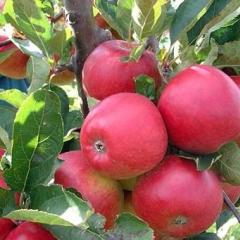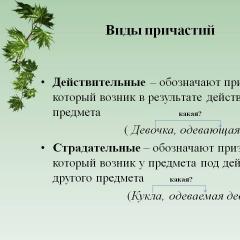Examples of comparison in the literature - in prose and poems. Definition and examples of comparisons in Russian
You can infinitely talk about the beauty and wealth of the Russian language. The discussion data is just another reason to join such a conversation. So comparisons.
What is a comparison
In fact, this term is multi-valued. This fact confirms endless comparison examples observed by us in everyday life. In conversational speech, it is rather the likelihood of different objects, the statement that they are equal or similar.
In mathematics, the term "comparison" is intertwined with a similar concept of "attitude". Comparing the numbers on equality or inequality, we find the difference between them.
The comparison is also called the process of comparing similarities and differences, disadvantages and advantages of several objects. As examples show, comparisons in such sciences such as philosophy, psychology, sociology is a kind of cognitive operations underlying reasoning about similarities and differences of the objects under study. With comparisons, all sorts of characteristics of these items or phenomena are detected.
Comparison in the literature: Definition and examples
Stylistic and literary comparisons are somewhat different. These are the figures of speech, in which some phenomena or objects are like otherwise on some common feature. The comparison method may be simple, then in circulation is usually predefined. They are among them: "As", "as if", "as if", "for sure." But there is an indirect comparison method: in this case, the mapping is performed using a noun in without an excuse. Example: "Onegin lived an anachore" ("Eugene Onegin" A. S. Pushkin).
Comparisons and metaphors
Comparisons are inextricably linked with another literary concept, metaphor - an expression used in a figurative sense. Actually, the basis of metaphor and lies not expressed directly comparison. For example, a line of A. Blok "Fight streams of my poems" is a typical metaphor (the word "streams" is used in a figurative sense). But the same line is both comparison: poems run like streams. 
Interesting the use of metaphorical techniques in the case of the so-called negative comparison. Examples of comparison can be easily discovered in the eponym. "Not two clouds in the sky were condensed, two remote Vityaz" - In this sample of the old-Russian epic, at the same time, the similarity of formidable warriors with dark terrible clouds is emphasized, and their identity denies, and a completely amazing general picture is drawn. 
Negative comparisons, more characteristic of the works of folk art and their folklore stylization, play a special role in the perception of an artistic image. Here is a line from the work of A. Nekrasov: "Do not make a pot on the Dubravushuk, the Sorvi-Head is coming - herself, rods and rubs the woods of a young widow." The second part of the expression (like ...) and itself is self-sufficient, it fully conveys the required meaning. But only the union of both parts of the sentence allows you to feel the whole bitterness, the whole tragedy of what happened.
Tool of expressiveness
Comparisons help explain concepts or phenomena, comparing them with other objects - sweet, as if honey, sour, like vinegar. But the main goal is not underscounted by the characteristic properties of the subject. The main thing is the figurative, the most accurate expression of the author's thought, because one of the most powerful means of expressiveness is a comparison. Examples from the literature brilliantly illustrate its role in the formation of the desired image to the author. Here is a line of creation from M.Yu. Lermontova: "Garun ran faster than Lani, faster than the hare from the eagle." It was easy to say: "Garun fled very quickly" or "Garun ran at high speed." But, being absolutely true in their essence, such phrases would not even achieve a small extent of that effect that is inherent in Lermontov's rows. 
Features
Having giving tribute to comparisons as a powerful expressive characteristics of Russian speech, many researchers were affected by the rationality of these comparisons. It would seem, where does the inconsistency? After all, no one requires special accuracy, literality! But there are no comparison examples, lines belonging to different people. "There were fireplanes here, like glasses with bloody wine" (N. Zabolotsky) and "Loomed, fate, on the market of the butcher, whose knife is bloody from the tip to the cutting" (Khakani). With all the inconsistency of these expressions, they are distinguished by a common feature. Both phrases tell about completely ordinary things (about red colors, about severe human destiny) and, recorded a little in a different form, could easily be lost in any text. But the use of comparisons ("glasses with bloody wine", "Butcher's knife") turned out to be exactly the stroke, which deliberately added particularly expressiveness and emotionality. Probably, therefore, in songs and romantic verses, where the emotional mood is already strong, comparisons are even less common than in a realistic narration.
Examples of comparisons in Russian
Russian is considered one of the most difficult. And at the same time, the creations of domestic classics in the world recognize the most vivid, original, talented. It seems between these facts there is an inseparable connection. The difficulty of studying the language consists in a considerable number of features present in it, capabilities, rules. But this also opens a huge scope for a talented writer who managed to master the cunning techniques. Russian is really very rich: it has truly infinite opportunities in it, allowing us to turn the usual word into a bright visual image, to make it sound in a new way that it remains forever in memory. Poetic works are especially placed. "Our life in old age is a worn robe: and conscientiously carry it, and sorry to leave." This line is a magnificent sample use of comparisons in literary creativity.
About the work of A.S. Pushkin
The great poet was a recognized genius of possession of the most partly used in its poems and in the poems of comparison are striking with their surprise and at the same time accuracy, accuracy. 
"Frosty dust silver his beaver collar" is a line from the poem "Eugene Onegin." Only a few words, but in front of the eyes there is a metropolitan boulevard, slapped by snow, and a young dandy, departing on the ball. And then there is already an episode on the ball: "I entered: and a plug in the ceiling, the fault of the comet splashed the current." Write Pushkin that Lackey scored a bottle of champagne, he would not retreat from the truth. But would it be so clear this picture of an extraordinary, festive, sparkling fun?
And this is from the poem "Copper Horseman": "And before the younger capital, the old Moscow was alarmed, as before the new queen, a porphyron widow." Is it possible to convey more precisely that the atmosphere of some patriarchalism and even abandonment that reacted in Moscow after the country of Peter was named after the capital of Russia? "Emoxy and captivity will love the Waves of Finnish!" - It's about how the waters of the Neva were cloving in granite. Yes, probably, it was possible to declare this without comparison, but did the painting painted by the author appear so clearly before the eyes?
And about Russian poetic creativity
Wonderful examples of using comparative images are enough in the work of other Russian poets. Amazing comparisons in the poem of the Bunin "Childhood" accurately transmit the atmosphere of a hot summer day, the sensation of a child who enjoys the sun and flavors of the forest. The author's sand is a silk, a tree trunk - a giant, and the Summer Forest himself is solar wards. 
No less wonderful, although completely different examples are present in the works of other Russian masters of the word. Comparisons in the poem of Yesenin "With good in the morning!" Open the reader Summer Dawn. Golden stars are dimmed, instead of river water - a mirror of the season, on birchings, green earrings, silver dews are burning, and nettle snapped with a bright pearl. In fact, all the poem is one large comparison. And about what is beautiful!
About comparisons in the work of S. Yesenin can be spent long - before all of them are bright, figurative and disliked. If in the work "with good morning" the atmosphere is light, joyful, pleasant, then when reading the poem "Black Man" there is a feeling of gravity, even a catastrophe (not in vain it is considered a peculiar requiem of the author). And this atmosphere of hopelessness is also formed due to unusually accurate comparisons!
"Black man" - the poem is tragically peculiar. A certain black person who arose or in a dream, or in the author's hot delirium. Yesenin is trying to understand what kind of vision. And then a number of brilliant comparisons: "That is how a grove in September, shines brains alcohol", "My head is waving my ears, like the wings of a bird, her legs on the neck of the leg more nemens," "In December in that country, snow before the devil is clean, And snowstorms are setting funny straps. " You read these lines and see everything: and a bright frosty winter, and great human despair. 
Conclusion
You can express your thoughts in different ways. But some of these are faded and dull phrases, or even a dismbretened meat, and others have luxurious flowery paintings. Comparisons and others allow you to achieve the patterns of speech both written and oral. And you should not neglect this wealth.


